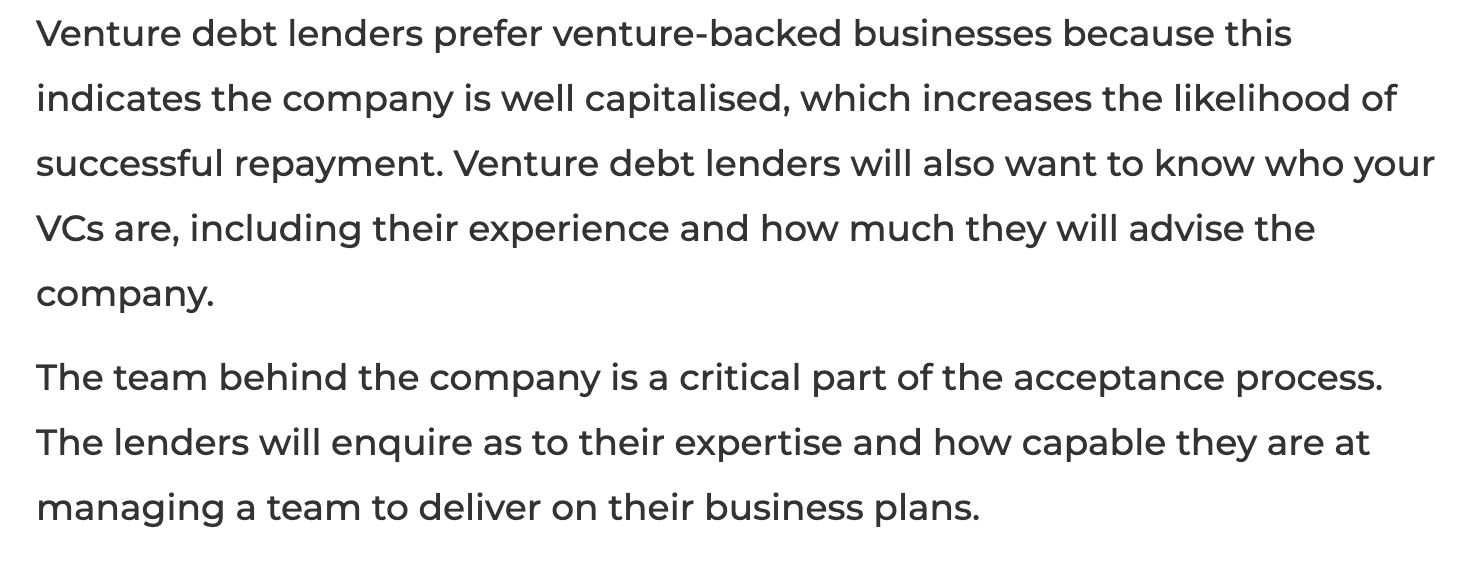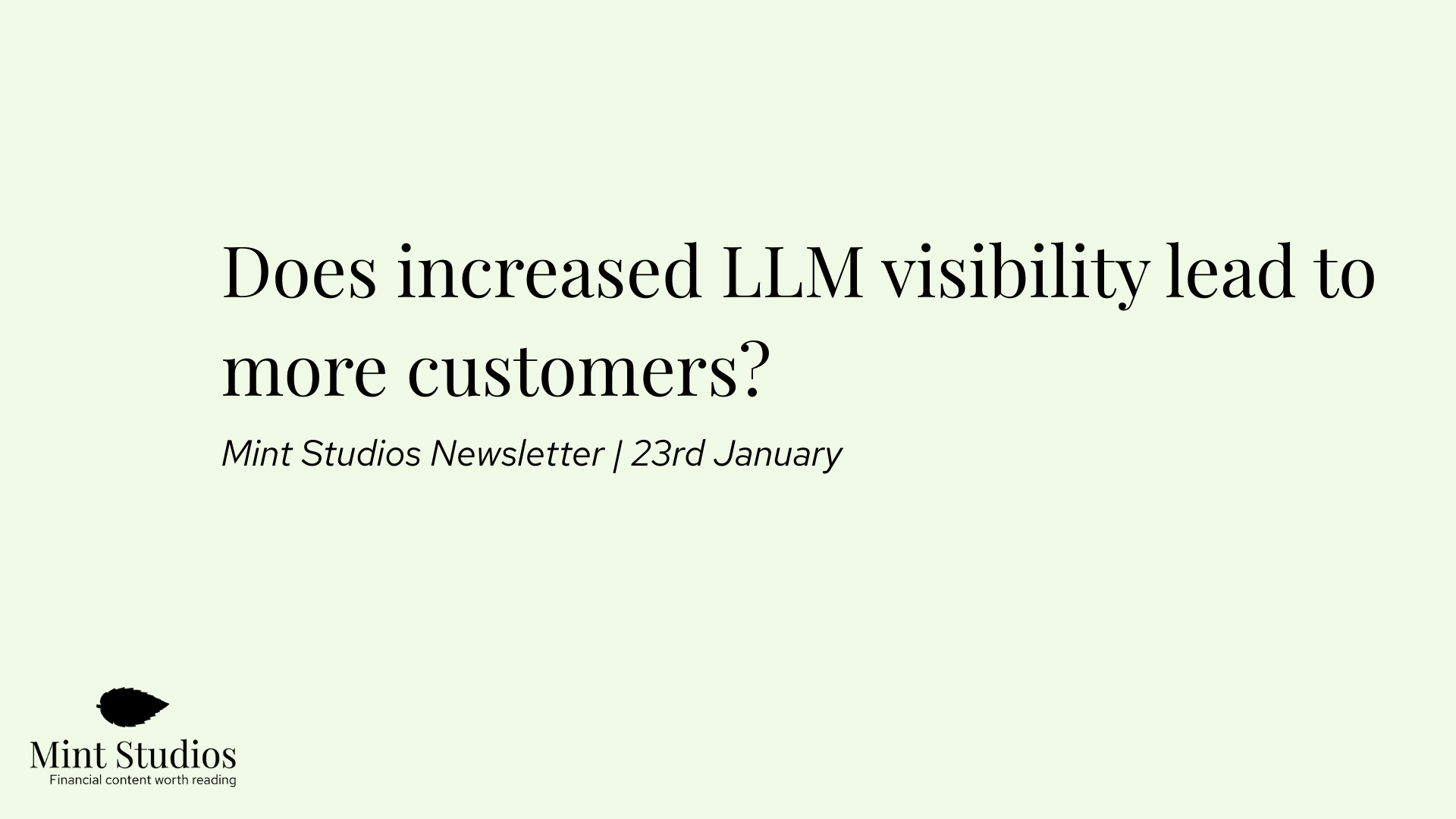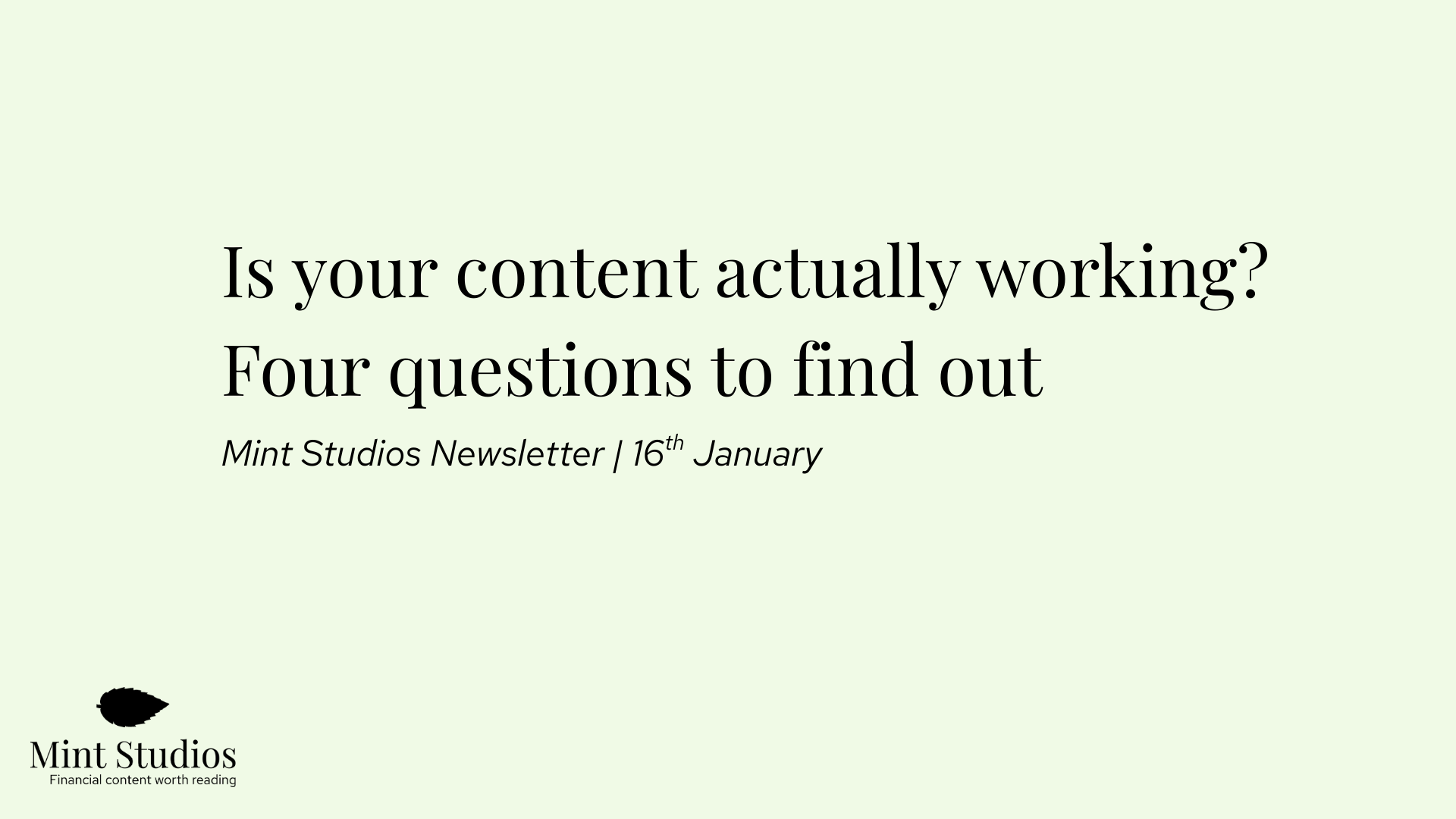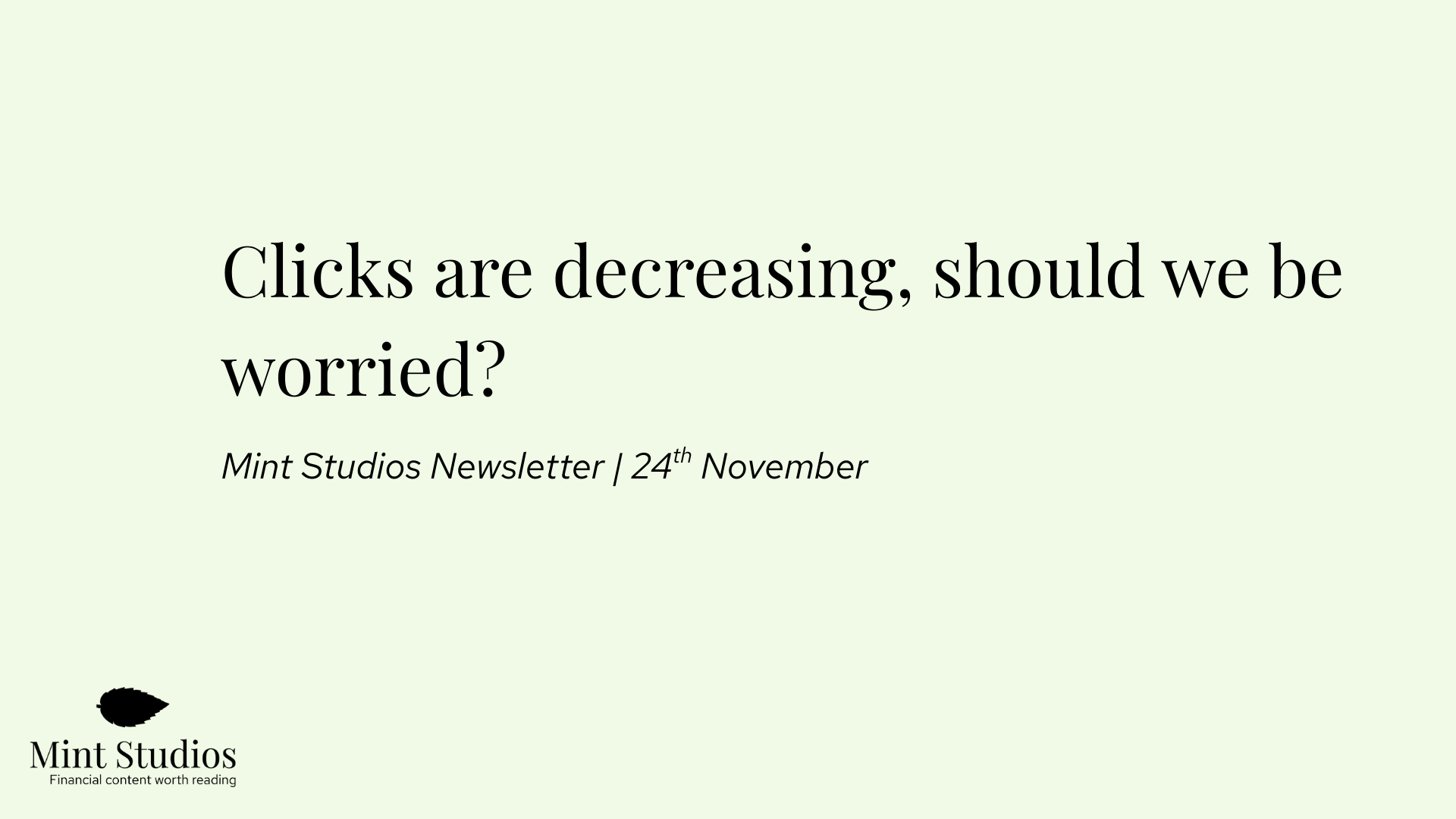If you’re looking for a good fintech content writer, it’s likely you’re looking for the following:
- Someone who can deconstruct fintech concepts and explain them clearly to your ideal buyer.
- A reliable freelancer or someone who can work part-time and long-term for your fintech startup.
- Someone who can help you create fintech content that your ideal buyer would read while also helping you meet marketing KPIs.
There are a lot of financial services freelance writers out there, which means you might have to filter through a lot of people to find someone who’s a good fit.
Specifically for fintech, you’ll need someone who can write about the more technical aspects of fintech and payments, interview a subject matter expert on your team and write for your audience – whether it’s Heads of Payments or CEOs.
We know quite a few fintech writers ourselves (our founder, Araminta, used to be one) and people in our Fintech Marketing Slack group regularly ask for recommendations of top fintech writers.
Based on those recommendations and our own experience, we’ve put together a list of the top fintech content writers, as well as tips on how to find an excellent content writer.
Let’s get started.
0. Mint Studios
Since we’re writing the article, we thought it would make sense to explain what we do. We’re a content marketing agency that helps financial services companies acquire customers and position themselves as experts with content marketing – so we’re not freelance writers.
That means we do more than writing: we help financial services companies turn their blogs into a customer acquisition channel.
Writing is just one part of content marketing. In order to build a content programme that brings in leads and positions you as an expert, you also need to implement strategy (understanding who your ideal customer is and what their challenges are), SEO, editing, interviews with Subject Matter Experts, backlinks, content distribution and more. That’s where we come in.
We use a four pillar framework to help financial services companies create compelling content that focuses on bringing in conversions as well as positioning themselves as thought leaders and experts:
- We take the time to understand who your best customer is and create a content strategy that targets them.
- We write for your ideal customer (not just anyone who would be interested in the topic).
- We write based on interviews with internal experts in your company.
- We track our results, so we can tell you how many leads and customers we’ve generated every month.
You can learn more about our methodology here: Our methodology
Now, onto the list of excellent fintech copywriters!
1. Andre Spiteri: Maverick Words
Andre has a lot of experience in the fintech industry, and has a thorough and professional process to working with clients. As a freelancer he can help you with:
- Web copy
- Blog posts
- Case studies
- White papers
2. Libby Marks: Write on Tyne
Libby has experience working across a variety of sectors, including SaaS, fintech, higher education and website copywriting. She can help you with:
- Strategy
- Web copy
- Landing pages
- Product pages
- Email sequences
- Ad copy
- Blog posts/articles
- Ebooks
- White papers
- Newsletters
- And more
3. Ian Lee
Ian Lee has experience working with the more technical aspects of the finance world, such as cryptocurrency, financial trading and investing.
He writes a wide span of content formats:
- Articles
- White papers
- Thought leadership
- Website copy
- Brochures
- Email copy
Some examples of work he’s done include:
- Whitepapers laying out the case for investing in specific Asian markets
- “How to” pieces breaking down what investors should look for when assessing various sectors
- Long-form guides for accredited investors looking to invest in high-ticket private equity deals.
4. Hans Singh
Hans has over a decade of experience, and a vast knowledge of all things fintech, investment, cryptocurrency, and digital assets.
He’s worked with companies involved in wealth management, payments, venture capital, private equity, and financial trading.
With a sales-focused approach, he can help with producing strategic content including:
- Blogs & Articles
- Sales & Landing Pages
- User Guides
- White Papers
- Reports
- Case Studies
- E-mail Marketing
- Thought Leadership
5. Anna Burgess Yang
Anna originally comes from an in-house fintech role herself. She worked for 15 years as a product manager at a fintech company, which means she’s a subject matter expert on a lot of fintech-related topics herself. She’s an expert on:
- Banking
- Loan management
- Risk management
- Community banking
- Fintech
- B2B
- Vendor management
- Digital transformation
- Product management
- Product marketing
- Product roadmap
- Technology
- Productivity
- Risk assessment
- Process automation
She can write in a variety of content formats including:
- Blog Articles
- Case Studies
- Whitepapers
- Ebooks
- Thought Leadership
6. Luke O’Neill: Genuine Communications
Luke has experience working with some well known fintech companies including Ramp and iwoca. He mostly focuses on B2B, and the content formats he focuses on include:
- Long form and short blogs
- Buyer guides and lead magnets
- B2B ghostwriting
- Case studies
- Content strategy and content creation
7. Joe Clark: Bellwether Writing
8. Jaime Thompson: Brand New Copy
9. Hannah Duncan: HD Investment Content
What should you look for in a fintech writer?
At Mint Studios, people on our team have experience working in-house, solo-ing as freelance writers, and also working at an agency that regularly hires and works with high-quality financial services writers.
A lot of people make mistakes when it comes to hiring freelance writers, which we go into detail here: Why We Believe Hiring Freelance Writers Doesn't Work for Most Companies
We do believe that working with freelance writers can be a huge asset to your fintech company, but it tends to work best when:
- You do the content strategy and content management. You’ve taken the time to understand who your ideal customer, what their pain points and have a plan to target them – which you can then share with your writer.
- The writer is able to write for a technical audience, and therefore for your ideal buyer.
- The writer is able to interview Subject Matter Experts, and base their content on those interviews.
- The writer works with you long term, and takes the time to understand your product, company and market.
- The writer is involved in the ongoing strategy as well, and for each blog article is asked to come up with ways you could target pain points, highlight features and benefits.
We’re not big fans of the “brief”, and prefer to use “questionnaires”. You can read why here: Are Content Briefs the Spawn of Satan?
Here are some tips on what to look for in a writer and the process we follow to hire writers that have helped generate $100k+ in business for our clients.
1. Their writing samples demonstrate clarity of thought
We believe that clarity of thought comes before everything else with writing. When it comes to writing about complex topics like in the fintech world, you need someone who can write clearly in order to create high-quality content. This is very hard to find, because as Paul Graham says:
“Good writing is an illusion: what people call good writing is actually good thinking, and of course good thinkers are rare.”
That means, you need to work with a writer that only uses jargon if necessary (e.g. if the audience is technical), doesn’t use lengthy sentences and filler fluff words that don’t make sense.
Here are two writing samples. Which one is clear, and which one isn’t?


Look for writers who write the second type. If you read their samples and think “I don’t understand any of this”, then they won’t be able to write great content for you.
2. They have experience writing about fintech related topics
Although having experience in financial technology helps, we would say clarity of thought is still more important than having a background in fintech. It’s a lot easier to teach an excellent writer about fintech, than to teach a fintech expert on how to write clearly.
The benefit of working with someone who has a background in fintech is that you won’t have to spend time editing and teaching them on various topics. And it’s even better if they’ve written on similar topics before.
Make sure to read their samples to determine whether they have the experience you believe they need to write on your fintech topics.
3. They have some content or marketing strategy skills
Writing for a company website is different to writing fiction or newspapers. It requires an interesting combination of skills:
- SEO (not always, but helps)
- Sales copywriting (especially if you want the reader to take action)
- Product copywriting (so they can link your products/features to pain points)
- Interview skills (to interview the SMEs on your team)
- Digital marketing (backlinks, etc)
When writing a blog post that will be read by your ideal customer online, you also want to make sure it’s optimised for reading from a laptop or phone. That means that writing skills should also include:
- Include bullet points
- Include bolding
- Keep paragraphs to maximum 5 lines
- Use CTAs
Ideally, the content writer you hire should help you get leads and customers with content. So having that strategic background will really help you get your content in front of your target audience, and achieve your marketing goals.
Read more on this topic: How Many Leads Can You Generate with Content Marketing?
Our process for hiring freelance writers
The problem with freelance content writing is that anyone can call themselves a writer and offer writing services. You just need a laptop and an internet connection. And because the barrier to entry is so low, there are a lot of below average freelance writers.
If you don’t follow a systematic hiring process, you risk spending A LOT of wasted time going through writers who are not a good fit.
We’ve hired over 15 freelance writers, so we’ve perfected the process over time. Our process helps us find stellar writers that stay with us for years. Here is the process we follow:
1. Read their samples
The number one indicator of a writer’s quality is their samples. You might have typed in “fintech content writers” into Google and was planning on hiring from the first few results. We recommend taking the time to read their samples before booking a call.
If when you read the samples, you think “I don’t understand what they’re saying”, then it’s not even worth reaching out to them.
A good trick is to read their article out loud. If it looks something like this, then it’s not a good sign:

Instead, you’re looking for people who:
- Can write about complex topics in a clear way.
- Are specific. They use examples and are specific about their arguments.
- Can write logically. What they write makes sense and flows well.
Here are some examples of good writing, if you want to see what this looks like in practice (and yes, this has been written by the writers on our team):
- How to Extend Your Startup Runway (Without Giving Up Control)
- Multi-party payments: How they work with Zai & when to use them
- Payment API: How Zai helps customise your customer journey
2. Set up a 30 min call with them
The issue with writing samples is that you don’t know how much of it was edited by someone else. Which is why it’s then worth setting up a 30 min call with the writer. This is so you can ask them a few questions, and also for them to see if it’s a good fit.
In this call, you’re determining two things:
- They’re not crazy and they are who they say they are.
- They can think clearly (based on the answers to your questions)
This is your opportunity to see whether they have clarity of thought. Here are some of the questions we like to ask to understand how the writer thinks:
- Take me through one of your articles, and walk me through how you prepared it and wrote it
- How did you do the research?
- Why did you structure it that way?
- Why did you choose this particular angle?
- Was this a success for your client? Why?
- How would you have changed things if X variable changed?
Quick note: many writers are introverts rather than extroverts, so just because they’re not charismatic in the interview it doesn’t mean they’re bad writers. And vice versa: be wary of those that you get along with exceptionally well on the call as this doesn’t always translate into great writing.
Which is why the next step is so important.
3. Do a paid test project
Really, there is no better way to see if there is a good fit with someone than by doing a test project.
Before signing a contract, ask the writer if they would be open to doing a test project. We pay £150, and the project involves them listening to an interview and then filling in a questionnaire (our version of the “content brief”) based on that interview. They then write the first section of an article (so they don’t need to write an entire article).
We also ask them to revise the questionnaire after we give them feedback, as this is a good indicator of whether they can take and implement feedback.
4. Trial 2 - 4 real pieces
We’ve still had people pass all the above phases and eventually not work out. Which is why we believe in doing 2 - 4 real articles before signing a long term contract with them.
These 2 - 4 articles are all based on interviews with experts, are technical, and will be real pieces that will be published.
After those articles, you’ll be able to tell if they understand your product, what they’re like to work with and whether you’re a good fit.
If someone passes all those four steps, then you have a winner. The next step is to keep hold of them: great freelance writers are rare, so you really want to maintain a good relationship with them.
Some tips to ensure high retention of your freelance writers:
- Pay them on time. Your freelancers will never forget you and will go above and beyond if you pay their invoices the same day they issue them. We always try to pay within 24 business hours of receiving an invoice.
- Offer positive and critical feedback. Editing an article is not just about looking for holes to poke – it’s also good to offer positive feedback and highlight the sections you love.
- Read the article from start to finish. Ultimately, writers want to create content that people will actually read. They will very much appreciate you reading the entire article, adding suggestions, implementing feedback and taking the time to go through the entire piece.
- If you can, share the stats. There is no greater feeling as a writer than knowing that your article influenced someone’s behaviour. Share how much traffic, leads and conversions their articles are bringing and you will make their day.
A good freelance writer is a huge asset over time. Make sure to keep in touch with them and hold them on for the long-term.
As you can see, hiring a freelance writer is more complex than just reaching out to someone you found online and then hiring them. Just like when hiring an employee, you have to take the time to pick a writer who is a good fit and will invest into understanding your product, market and company.. If not, it’s money down the drain.
With this approach, we’ve been able to hire freelance writers who have helped generate customers for our clients worth $100k+.











